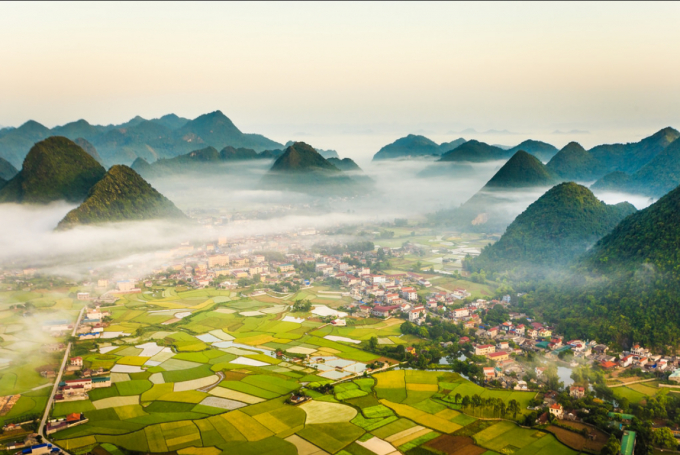November 28, 2025 | 02:53 GMT +7
November 28, 2025 | 02:53 GMT +7
Hotline: 0913.378.918
November 28, 2025 | 02:53 GMT +7
Hotline: 0913.378.918

Lang Son aims to develop tourism into a spearhead economic sector by 2030.
Established in April 2021, "Tourism development in Lang Son towards 2030" has been urgently and effectively implemented by the province with the goal of developing Lang Son tourism into a spearhead economic sector.
Since mid-2021, the dissemination of information and investment promotion for tourism development has been carried out following the project's plan. In addition, adjustments are made to ensure the effective, quality and suitable targets for the realistic situation.
The project's activities include organizing cultural and tourism events, fairs, investment promotion workshops; encouraging and honoring titles, brands, and unique provincial tourism products: focusing on developing tourism products that are local agricultural products; honoring valuable agricultural products in the top 100 list of Vietnamese culinary specialties and souvenirs.
In addition, the project implemented the one commune one product (OCOP) program with specific, diverse and quality products to serve the shopping needs of tourists; coordinate in organizing festivals to promote tourism products such as: tangerine, custard apple, anise, roast duck, roast pork, wine, etc.
Due to the temporary control of the Covid-19 pandemic in the first 6 months of 2022, tourism activities in Lang Son province had seen many new changes. The promotion of Lang Son tourism image is increasingly extensive and effective.
2 Famtrip delegations have been organized throughout 2 years to invite experts and local tourism businesses as well as introduce Lang Son provincial community tourism products, organize workshops on community tourism development in Lang Son province and participate in tourism promotion activities outside the province at key international tourism fairs held in Hanoi and Ho Chi Minh City.
Some tourism products of the province have asserted their brands, tourist zones and spots have been invested to improve the quality of tourism products; the quality of tourism services is increasingly diversified and raised.
However, Lang Son admits that the province's tourism sector still suffers from many limitations. Accordingly, a group of solutions suggested by the province include: renewing awareness and mindsets; strengthen promotion, publicity, establish a safe and healthy environment for tourism development.
In addition, the province recommends to supplement and refine mechanisms and policies, create a favorable environment for tourism development and develop tourism infrastructure, build tourism products, especially those imbued with the cultural identity of the provincial ethnic groups.
The province has determined to renovate the structure of the tourism sector, strengthen linkages with other localities in the region to develop tourism and human resources, improve the capacity and effectiveness of state management in tourism.
Translated by Nguyen Hai Long

(VAN) According to Mr. Vo Minh Thanh, Director of the Tay Ninh Department of Agriculture and Environment, Resolution 57 has created a new development pathway for the locality, shifting from traditional toward modern agriculture.
/2025/11/26/4909-2-154329_878.jpg)
(VAN) Pearl grouper farming in HDPE cages not only delivers economic efficiency but also contributes to protecting the environment, creating jobs, and promoting marine-based experiential tourism.

(VAN) The model of making a living under the forest canopy through the agroforestry system in Van Son commune, Bac Ninh province, is expected to generate an annual income of approximately VND 30 million/ha.

(VAN) Many enterprises in Can Tho are harnessing natural energy and reducing greenhouse gas emissions in their production processes, thereby contributing to the promotion of a sustainable green transition.
/2025/11/24/3536-2-112800_176.jpg)
(VAN) Dong Nai now has tens of thousands of hectares of forests certified for sustainable management, and this area will continue to be expanded in the coming period.

(VAN) Vinh Ha hamlet (Dai Xuyen commune, Hanoi) is shifting away from small-scale farming as households adopt bioscurity into their breeder chicken models.

(VAN) Heavy rains make aquatic species more vulnerable to disease. Proactive water management and high-tech systems help farmers prevent outbreaks and protect yields.